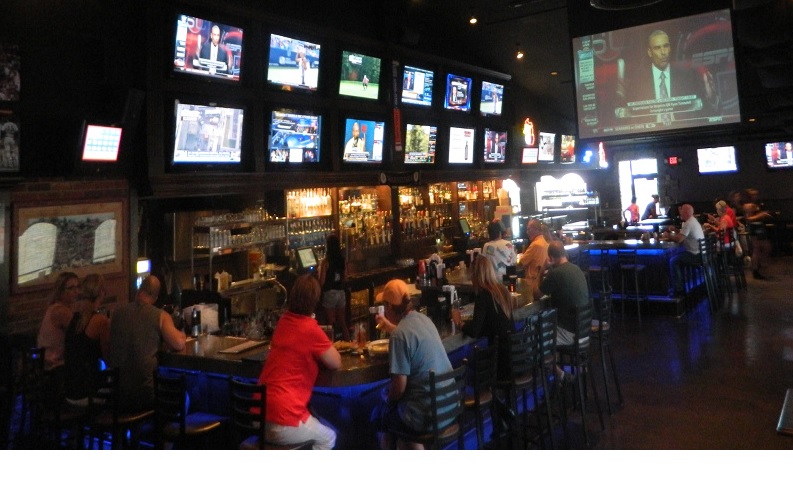I just finished reading an article about the journey to mobile POS taken by one of our customers, Uptown Grille in Michigan, and their Maitre'D reseller, Marketplace Business Solutions (MBS). Their story is interesting and frank. It’s here: take a look at it when you get a chance.
Uptown Grille is a 17,000 square foot operation, including a restaurant, sports bar and dance floor. The challenge they faced was line busting, but a different kind of line busting than you might expect. Not a QSR, Uptown Grille didn’t have a problem with customers waiting in line; they had a problem with their server staff waiting in line. That slowed down order entry, preparation and delivery, most especially on their busy nights.

Photo from uptowngrille.com
Initially, they thought additional POS stations throughout the operation would break the queue, but once MBS installed the stations, they didn’t deliver the results. MBS and Uptown Grille huddled, strategized and decided to remove the new stations and move instead to a mobile POS solution. How they made that move is a story of how to do it well.
The case study is a good overview of some of the important steps you have to take when bringing mobile into your POS.
- It talks about the kind and quality of the wireless network. You really can’t reliably use a consumer-grade wireless network. Even at its MegaUltraSuper level of access, consumer networks simply can’t hold up under commercial traffic. And there are the security factors, including PCI compliance, that you can’t get from consumer-grade connections.
- There’s more to the network than, well, the network and the article touches on that too. There’s the design of the access points throughout Uptown Grille. The purpose of access points is to ensure that the network connection is at maximum strength no matter where servers are in the building. MBS performed a careful analysis, and determined that installing eight access points would deliver that level of always-connected service.
- MBS' approach was to keep their eye focused on the least-cost solution. Their first try—handheld devices—proved unsatisfactory. In a pilot program the servers found them too small, requiring too many taps and menu selections, for them to be practical in a busy environment.
- When they did decide on tablets, they made another smart choice by looking beyond consumer tablets and selecting instead a rugged, made-for-business tablet.
- They added a card reader and Epson printer to a third of the tablets, so staff could take orders, make modifications, accept payment and print the receipt all without leaving the table.
It’s a good approach, and a good mix of technologies, designed to deliver a good return.
Which it did. The article reports that Uptown Grille saw a 30 percent improvement in service speed on busy nights, and watched ordering mistakes drop by 50 percent.


